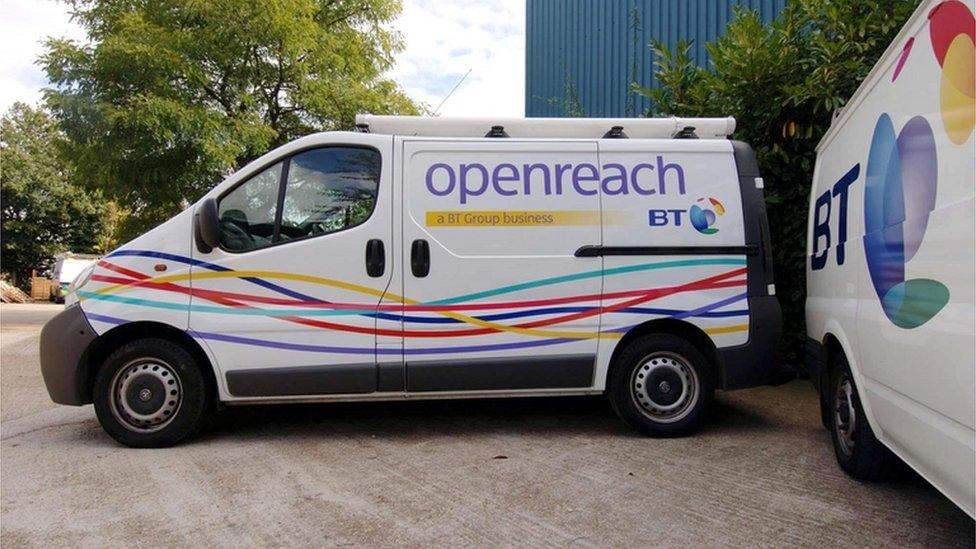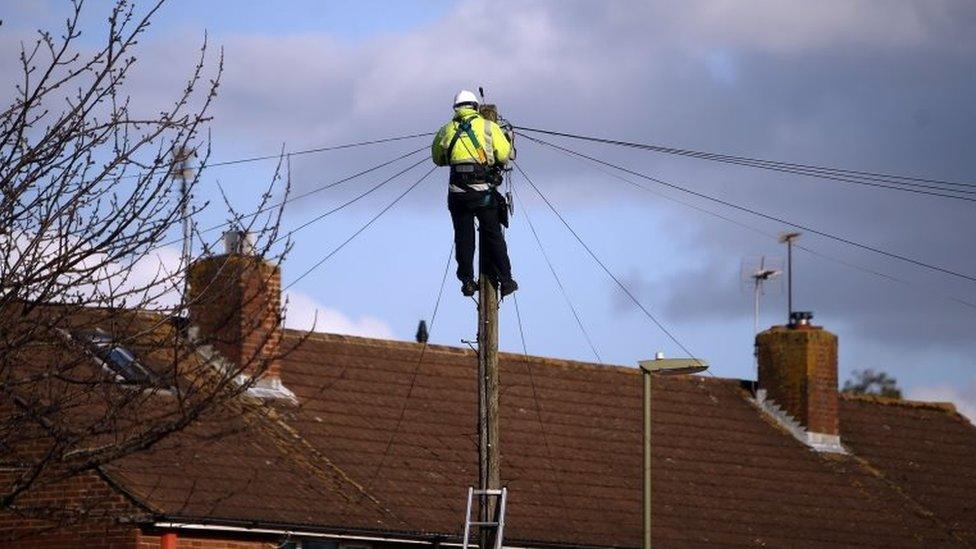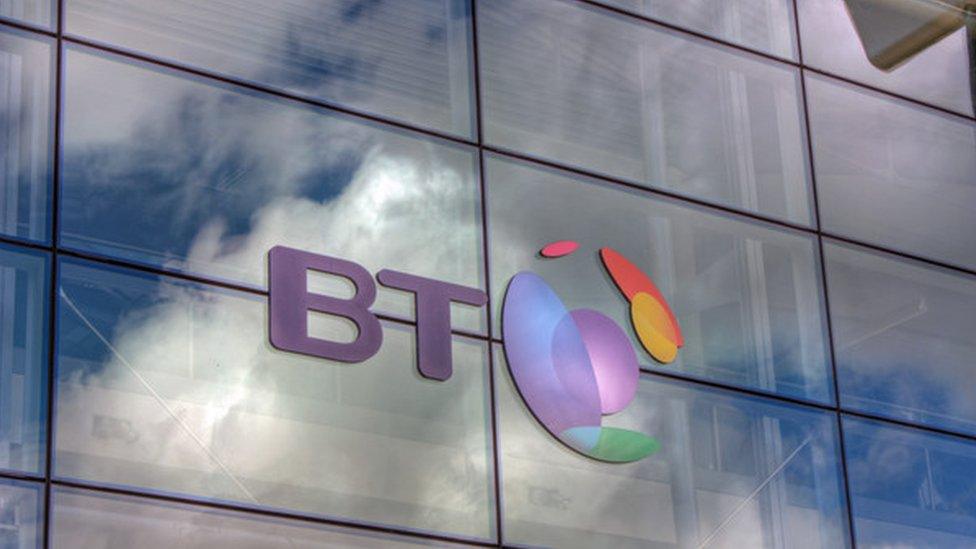BT ordered to split legally from Openreach by Ofcom
- Published

Telecoms regulator Ofcom has ordered BT to separate legally from its Openreach division, which runs the UK's broadband infrastructure.
Openreach should become a distinct company within the BT group, the regulator said.
BT had not voluntarily addressed competition concerns Ofcom laid out in July, it said.
However, BT said its proposals were "fair and sustainable", and that it would continue negotiating with Ofcom.
The regulator said it was preparing a formal notification to the European Commission to start the separation process.
Ofcom has resisted calls to split Openreach off entirely, which telecoms rivals have sought.
Ofcom said BT had not gone far enough, external to address its concerns about BT's ability to favour its retail business when making investment decisions in Openreach.
It wants Openreach to become a distinct company with its own board, with non-executives and a chairperson not affiliated with BT. It also wants Openreach to have control over its branding and budget allocation.
Openreach would also have a duty to treat all of its customers equally, the regulator said.
Talks continue
On Monday, BT had appointed Mike McTighe - who was on the board of Ofcom between 2007 and 2015 - as the first chairman of Openreach.
BT said in a statement: "We put forward proposals in July that we believe are fair and sustainable, and that meet Ofcom's objectives without disproportionate costs.
"We are implementing these proposals, and have just appointed Mike McTighe to be the first chairman of Openreach. We are in discussions with Ofcom on two outstanding issues, the reporting line of the Openreach chief executive and the form of legal incorporation.
"We will continue to work with Ofcom to reach a voluntary settlement that is good for customers, shareholders, employees, pensioners and investment in the UK's digital future."
The Department for Culture, Media and Sport said Openreach "needs to offer genuinely fair and equal access to the country's telecoms infrastructure to BT's competitors" and that it supported Ofcom action to achieve this.

Analysis: Dominic O'Connell, Today programme business presenter
BT's rivals, including Sky and Talk Talk, had complained bitterly about the service they received from Openreach, saying it charged too much for the use of broadband lines and was unresponsive to their demands. They wanted a full break-up of BT, with Openreach being turned into a separate company.
Ofcom has come some of the way, with Openreach now to become a legally separate entity, with its own independent board. But crucially it will still be owned by BT. Telecoms experts say the devil will be in the detail - how much control will BT be able to exert over Openreach under the new structure?
Sky and Talk Talk will be watching for any signs of too much influence - but if BT has no say at all over Openreach, it may in the end decide to break itself up anyway.

BT shares wobbled in early trading, losing 1.5% at first before recovering to trade higher by 0.5%.
Dido Harding, the chief executive of TalkTalk, told the BBC that "consumers and businesses across the country are completely fed-up that their broadband doesn't work".
She said the Ofcom action was "a small step in the right direction" but that "even this complicated legal separation is one that BT Group has been fiercely resisting," she said.
BT rival Sky said: "Let's not forget why we are here - BT Openreach has continued to fail consumers... We will now watch closely as to how Ofcom executes its proposals."
Vodafone said: "We believe Openreach should be separated from BT as soon as possible so BT's customers and other providers can be better protected from... excessive charges," it said.
BT has in the past rejected Vodafone claims that BT charges too much for regulated wholesale broadband services.
Alex Neill of consumer group Which? said that "millions of people have suffered woeful levels of service from Openreach" and said the separation must happen quickly so customers "really do get faster, more reliable broadband".

'Clear flaws'
Despite the appointment, the BBC understands that Ofcom is still concerned that - against its wishes - Openreach chief executive Clive Selley will continue to report directly to BT Group chief executive Gavin Patterson.
Ofcom is also concerned that Openreach will not end up in control of its own assets and cash, and that it may not be able to consult confidentially with customers such as Sky and TalkTalk.
The BBC understands that BT is concerned that transferring Openreach assets and cash will incur costs that would take away from investment in broadband infrastructure.
Kester Mann, an analyst at CCS Insight, said: "Today's news shows that Ofcom remains hugely concerned over BT's ability to satisfy its competition concerns.
"It again highlights clear flaws in the existing Openreach model and a worry that UK broadband deployment could be restricted without serious change."
He said BT's rivals could criticise Ofcom for not pushing for structural separation, but they should see Ofcom's efforts to engage with the European Commission as "a partial victory".
- Published26 July 2016
